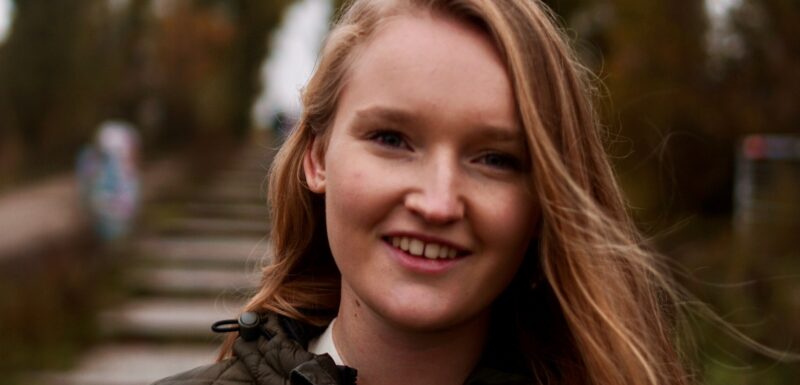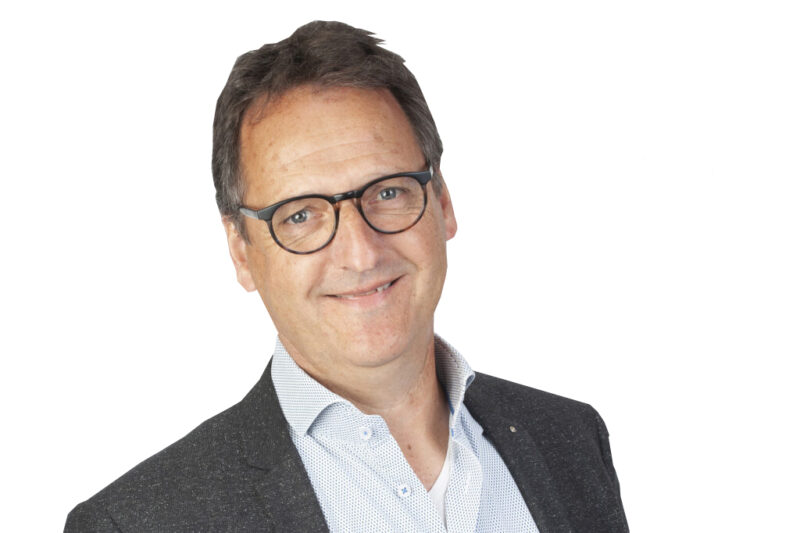
Vader-Dochter interview
EventPro van morgen!
‘Die ouwe deed het NWIT in Breda in de 80’s en nu zit dochter Femke op de BUas, Breda University of Applied Sciences. Events for Business. Mooi interview met vader en dochter, over verschillen & overeenkomsten, zo’n 35 jr later.
Shaping the future of your profession (Interview: Maaike Dukker-’t Hart)
In the 1980s Henk Vellekoop opted for a study programme in tourism at NWIT (currently BUas) in Breda. In 2020 his daughter Femke also went to Breda to study Leisure & Events.
Coincidence or not?
‘It may sound strange, but it was never really top of mind for me that my father studied in Breda,’ Femke laughs. ‘It was only when I had dismissed the hotel school in Maastricht and BUas came into the picture as an alternative that I started looking into it more.’
The vibe is still the same
‘And so it happened that we were suddenly sitting together in Café de Bommel, where I often went in my student days,’ says Henk. ‘What’s also a funny coincidence, is that I lived at the Haagweg and Femke is living in a student house near the Haagdijk. To me it felt a bit like coming home, a feeling I also had very strongly when I walked around the BUas campus with Femke on the open day. The vibe is still the same. I think that’s special. The institute has seen substantial growth, but has still managed to hold on to its small-scale character. And also, the personal approach, the connection with students. Femke told me that there was a lot of attention for students in the corona period, that’s something you do well!’
The way BUas presents itself, that’s really what the school is like
Henk graduated in 1983 and has been owner-manager, since 1998, of VTC Travel Solutions, an organisation for business travel events. Femke ultimately opted for Leisure & Events. ‘The way BUas presents itself, that’s really what the school is like,’ she says enthusiastically. ‘I am super happy to be here now. I chose the new specialisation of Events for Business, which is not entirely a random choice, of course. At first I didn’t want to go in that direction at all, because I thought: oh dear, I’ll have to take over my father’s company then. Now I think differently, but I am definitely going to work somewhere else first.’
Being ‘en route’ is fun
Henk did so too. After his graduation at the Provinciaal Planologische Dienst (Provincial Planning Authority) in The Hague, he worked at several major travel organisations, including De Jong Intra. ‘My graduation project at the PPD didn’t go altogether smoothly,’ Henk confesses, ‘I found it all a bit dreary and it was not at all why I had chosen tourism. I am quite a restless type, my father was a lorry driver and I also wanted to be ‘en route’ a lot, I liked that.’
‘And I still do. Whenever I can, I accompany the trips I organise. Soon I will be going to Athens with a purchasers’ association of shoe shops. Fortunately, it is possible again! We will be visiting a leather manufacturer among others. It involves real networking trips, along the way, the entrepreneurs exchange experiences on how they do things. I put a broader concept in the market. It is not just about company visits, I try to turn every event into an experience.’
Discover Your World
And that requires a great deal of creativity. Femke knows that too, which is why she doesn’t really understand why fellow students often label business events as boring. ‘I have discovered that they are actually very fascinating. In the first year, we have this course called Discover Your World, where you work on assignments for various industry clients. This enables you to find out which field of study appeals to you the most.’
‘So you see, as a first-year student, you are already immersed in practical experiences, which I find wonderful,’ says Henk.
‘Every ten weeks, we have a different course,’ Femke continues, ‘at the moment this is Knowing the Industry, consisting of workshops about hospitality and logistics. We also work a lot with senior year students. We are now learning about digital tools from Media students, for instance. It is nice to pick up things from the other degree programmes. And there’s a keynote speaker from the industry every week.’
When you started working, you knew nothing!
‘It strikes me how much further Femke is in her personal development than I was at the time,’ says Henk. ‘When I see her thinking, her courage and her actions, well, hats off! That strong-willed and progressive streak was something we had too at the time, but it was much more regimented and very theoretical. We were trained for middle and higher management, but when you started working, you knew nothing! Just start from the bottom, they used to say. Now they already exposed to the world of work during their studies. It’s wonderful that they have this opportunity. In the entrepreneurs’ association that I am a member of, I always say: get young people involved! Companies often don’t get what makes young people tick, but we have a mutual obligation to understand each other.’
‘That is why contact with the industry is so important,’ Femke stresses, ‘you don’t learn from a book how things work in practice.’
‘Exactly,’ Henk agrees, ‘you can now no longer say that you know something, because tomorrow it will all be different. That primarily requires learning by discovering things for yourself.’
‘Ah, but we do get help with this,’ Femke laughs. ‘In a Personal Development Programme, for example, you learn how you can set goals by starting very small and then achieve and add to them step by step. This allows you to discover what suits you best, in your own unique and special way. They never say here that you don’t have certain qualities, you just haven’t developed them yet. You mainly learn how you can emphasise your strengths.’
Shaping the future of your profession
Henk would have liked to have had those personal development classes too. ‘Students today are equipped with much more knowledge and skills, but then again, they really need it. Just take the pandemic in which we currently find ourselves. Soon I am going to be one of those keynote speakers Femke was talking about. It isn’t much fun, but I am still going to talk about how a crisis is needed every now and then to take a critical look at yourself and your company. How can you shape the future of your profession? Because it is about change. I strongly believe in authenticity. I once talked to someone from KLM who made it more or less clear to me that I don’t count, because I’m small. And then I just shrug and think: being big is not the be-all and end-all.’
‘Small is actually important,’ Femke concludes, ‘it is much more personal, it is about a special experience and your own choices. I see this at my father’s company and it is also precisely what BUas is.’








